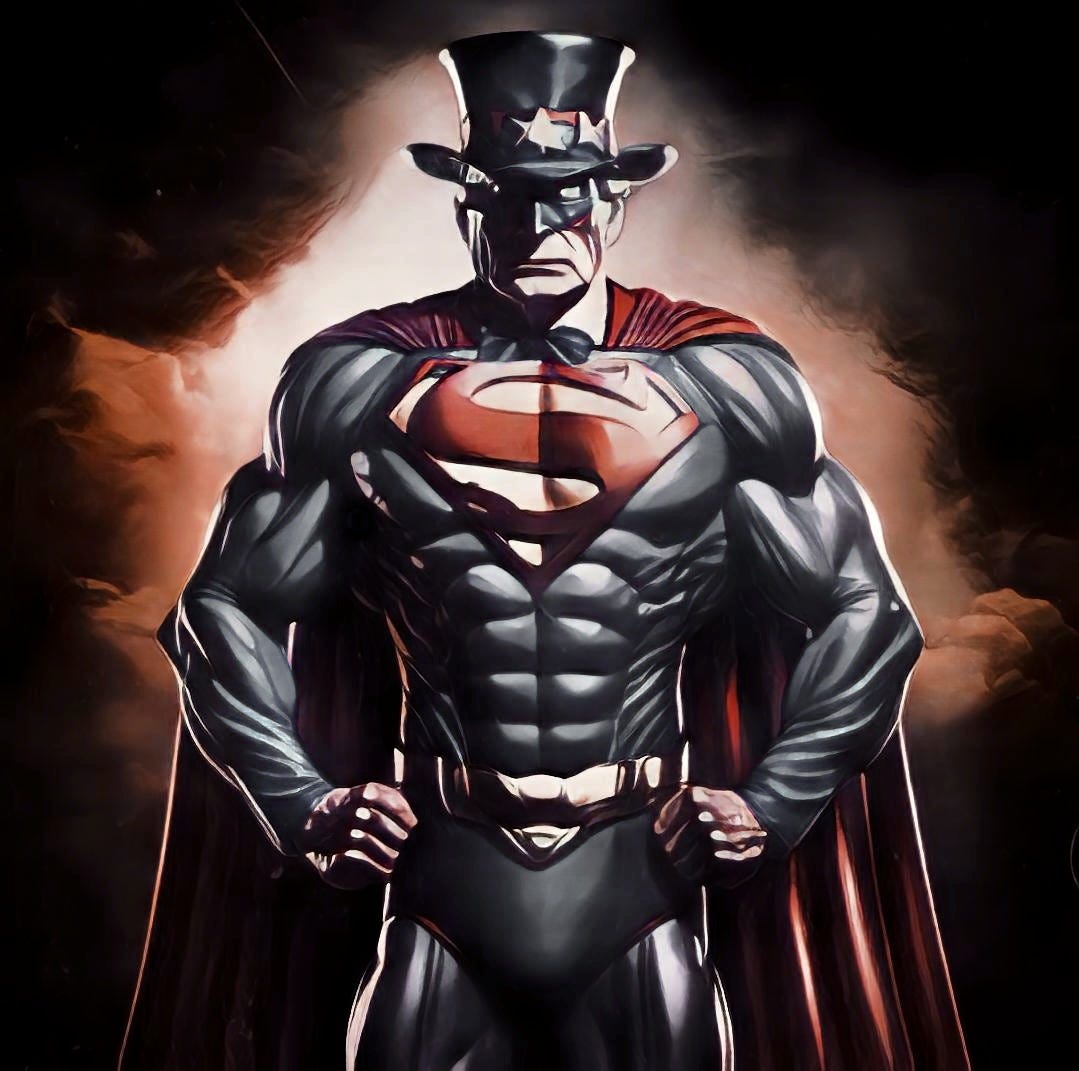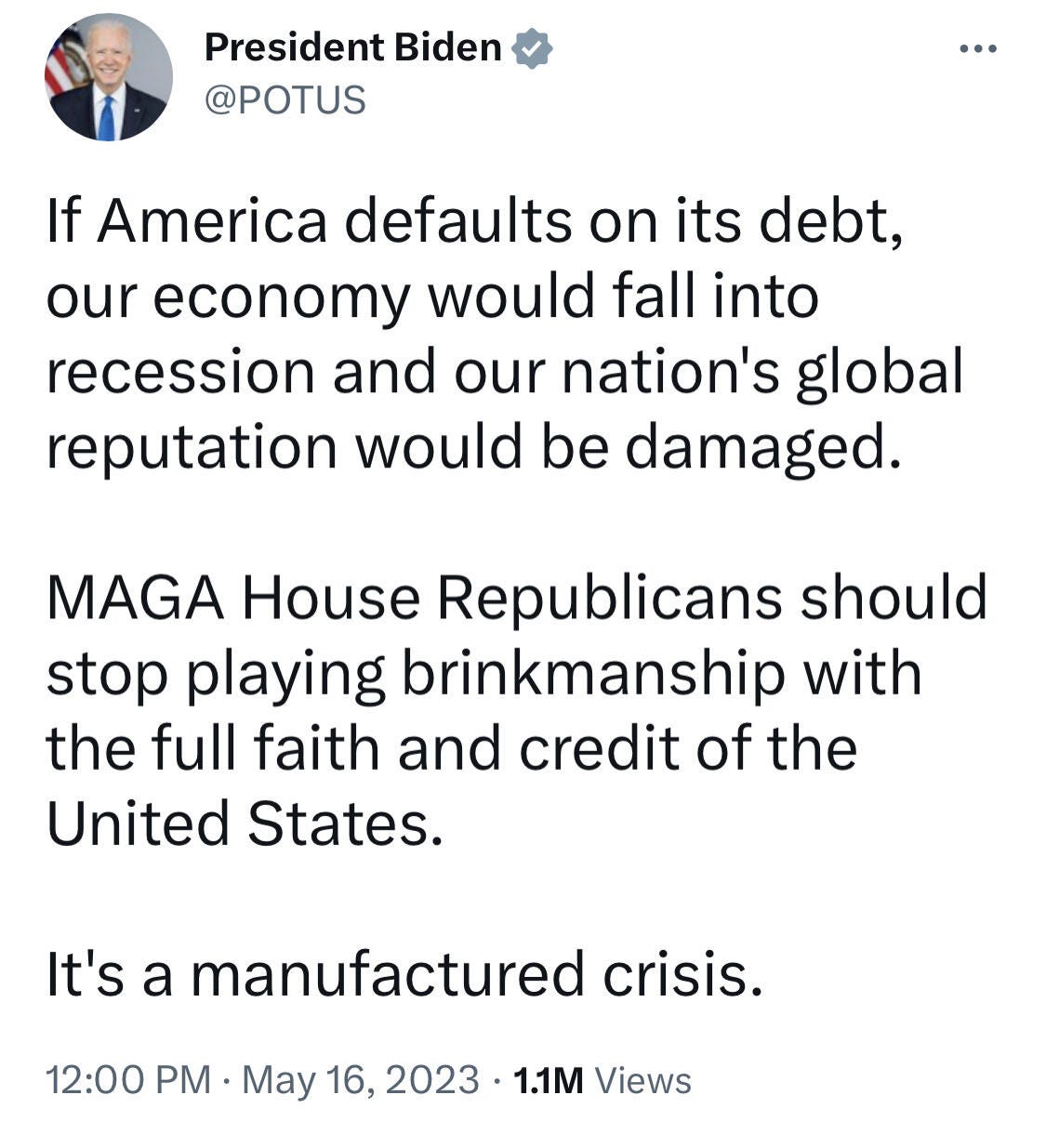Time Stamps:
(0:00) Opening
(1:54) A Dirty Look Isn't Enough
(8:03) Manufactured Respectability and the Debt Ceiling
(9:43) Maharrey on the Jeffersonian Debt Solution
A Dirty Look Isn't Enough
There's a good chance that Special Counsel John Durham was born with a dirty look. Too bad he's controlled opposition.
Why? When you're an institutionalist, you are controlled opposition by definition. Precisely the brand that Bill Barr would be very happy to appoint.
I'm gonna give away the game early, because that's how I roll.
The most important line in the New York Post article:
Durham... dug deep into the origins of Operation Crossfire Hurricane, but his final report didn’t urge new criminal prosecutions.
Second most important line:
Durham stopped short of recommending significant reforms to the FBI.
And for the conventional cookie crowd…
"Durham concluded his four-year review with a scathing indictment of official bias in the probe, which fueled Pulitzer Prize-winning coverage of Trump’s theorized conspiracy with the Kremlin to win the White House."
“Theorized conspiracy?”
I mean, it's like calling Hillary Clinton and Adam Schiff conspiracy theorists without actually doing so - but which they are. “Russia Russia” tinfoil was sold out by the time they mummy-wrapped their careers in it.
As I quote John Durham, I'll do so to the voice of his face.
“It is the Office’s assessment that the FBI discounted or willfully ignored material information that did not support the narrative of a collusive relationship between Trump and Russia,” Durham wrote.
“Similarly, the FBI Inspection Division Report says that the investigators ‘repeatedly ignore[d] or explain[ed] away evidence contrary to the theory the Trump campaign… had conspired with Russia… It appeared that … there was a pattern of assuming nefarious intent,'” he added.
“An objective and honest assessment of these strands of information should have caused the FBI to question not only the predication for [the investigation], but also to reflect on whether the FBI was being manipulated for political or other purposes. Unfortunately, it did not.”
UPDATE: Judge Andrew Napolitano shared his sentiments and insights on this matter, which reflect my own. I also eagerly recommend Clint Russell's in-depth coverage of the Durham Report on Liberty Lockdown.
Manufactured Respectability and the Debt Ceiling
Joe Biden Tweets:
What's the point of a debt ceiling if you have to keep raising it?
Do you do the same thing with a physical ceiling when your house runs out of space?
It's just taken as a given that every "respectable" person knows you have to do it.
Congress gets to vote on whether Congress should get to spend more money. It's a wonder there's really any resistance.
I suppose it's a "manufactured crisis" in the sense that Republicans would spend just as much when they're back in the White House, but it's still kicking the can down the road and paying mainly just the interest as you go.
Luckily, Mike Maharrey at the Tenth Amendment Center has taken this occasion to remind us of how Thomas Jefferson handled the federal debt he inherited.
The way Thomas Jefferson handled the national debt should serve as a blueprint today. But instead, modern presidents look more like college students on a spending spree with their first credit cards.
In January 2017, the national debt stood at a whopping $19.95 trillion, but like years prior, it only got worse since then. In just the next four years, we saw another $7.8 trillion added to the debt, and another $680 billion was added to the total in just the next eight months. You don’t even have to know the current numbers to recognize that this is totally unsustainable...
But this isn’t just a “current guy in office” problem. Every modern president inherited a huge national debt and managed to expand it during their time in office. In fact, since 1940, every successive presidential administration has spent more than the previous administration in inflation-adjusted dollars.
But there was a time when some presidents took paying off Uncle Sam’s debts seriously. For instance, Thomas Jefferson faced a huge national debt when he took office in 1800. But unlike his modern counterparts, he didn’t grow it further. In fact, he significantly whittled down the debt.
Jefferson and his fellow Democrat-Republicans in Congress knocked about $26 million ($420.8 million in 2018 dollars) off the debt through his two terms in office — this despite taking on an additional $13 million of added debt for the Louisiana Purchase.
Maharrey further discusses the Jeffersonian solution on Twitter.
External Resources:
FBI, DOJ’s Trump-Russia ‘collusion’ probe was ‘seriously flawed,’ no basis in evidence when opened: Durham by Samuel Chamberlain and Steven Nelson
The Durham Report: Facts, Findings and Omissions from Liberty Lockdown
Durham Report post-op/ Gun Rights Around the U.S. from Judging Freedom
How Thomas Jefferson Handled the National Debt by Mike Maharrey














